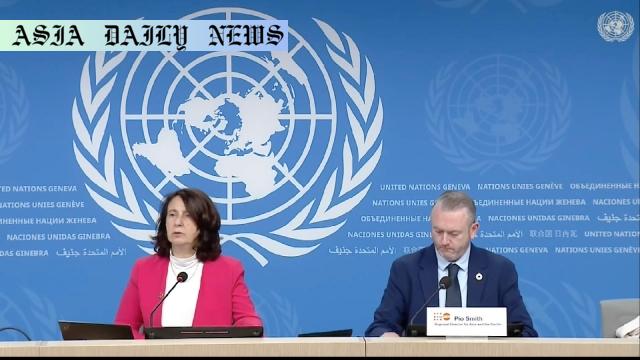UNFPA services in multiple countries suspended after US foreign aid pause.
The UNFPA has halted US-funded services in over 10 nations.
Health services for over 11 million people were disrupted by foreign aid suspension.
Afghanistan, Pakistan, and Bangladesh are among the hardest-hit countries.
Maternal deaths in Afghanistan may rise without restored US funding.

Overview of the US Foreign Aid Suspension
The recent decision by US President Donald Trump to pause foreign aid programs for 90 days has caused significant global ripple effects. The suspension, enacted through an executive order, aims to enable a thorough reevaluation of these programs. While it exempts certain initiatives, such as emergency food assistance, countless other aid-reliant services have been halted, leaving millions vulnerable.
UNFPA Services Halted in Over 10 Countries
The United Nations Population Fund (UNFPA), which relies heavily on US funding, has taken a severe hit from the suspension. The organization, which plays a critical role in health and maternal care worldwide, announced the suspension of services in more than 10 nations. The countries most affected by this decision include Afghanistan, Pakistan, and Bangladesh, where millions of individuals depend on essential health services provided by UNFPA.
Humanitarian Impact on Affected Nations
In Afghanistan alone, over 9 million people are now facing the loss of vital maternal and healthcare services. Pakistan and Bangladesh, home to 1.7 million and 600,000 affected individuals respectively, are experiencing a similar crisis. The stakes are particularly high for maternal health, as UNFPA predicts that the absence of US funding may result in 1,200 maternal deaths in Afghanistan between 2025 and 2028. This projection serves as a grim reminder of the crucial role foreign aid plays in saving lives.
Advocacy and Urgent Appeals
During a press conference in Geneva, UNFPA representatives emphasized the critical importance of US involvement in these programs. They highlighted how US taxpayer contributions have historically saved millions of lives around the world, and urged the Trump administration to resume aid funding. While the halt only affects a specific subset of projects, the far-reaching consequences underscore the importance of consistent international cooperation in humanitarian efforts.
Lessons and Broader Implications
This development also raises deeper questions about the fragility of global aid systems and the heavy reliance on US funding. For many nations, foreign aid is a lifeline that ensures the continuation of essential services. The disruption in funding reveals the vulnerabilities of these programs and points toward the need for diversified and sustainable financing mechanisms to withstand such shocks in the future.
What Happens Next?
As the 90-day reevaluation continues, stakeholders from humanitarian agencies, affected countries, and donor governments will likely engage in discussions to address these challenges. Whether temporary or permanent, this funding pause serves as a wake-up call about the fragility of global welfare programs and the human cost of political decisions.
In conclusion, the suspension of US foreign aid amplifies the need for international cooperation and long-term support structures. As millions continue to face uncertainty regarding healthcare access, it is a moment for policymakers worldwide to reflect upon the shared responsibility of improving lives across borders.
Commentary
The Consequences of Aid Suspension
The suspension of foreign aid by the US is a critical event with cascading effects, particularly in regions already struggling with healthcare infrastructure challenges. The decision to halt funding for programs like those of the UNFPA raises not only practical concerns but also important ethical questions about global responsibility and equity.
The Human Toll of Policy Decisions
One cannot ignore the fact that decisions made in Washington, D.C., have direct and immediate effects on millions of lives across the globe. The projection of 1,200 maternal deaths in Afghanistan due to this aid freeze is not just a statistic but a stark reminder of the fragility of progress in public health. It shows how easily and quickly humanitarian gains can be reversed.
Calls for Sustainable Solutions
While the current scenario is distressing, it also offers lessons about the need for diversified funding sources. Relying primarily on one donor country makes programs vulnerable to political shifts. This situation is an opportunity for global stakeholders to explore alternative, more resilient funding structures that can withstand such abrupt changes.
In summary, the developments surrounding the UNFPA and US foreign aid illustrate the interconnectedness of policy, funding, and human well-being. Moving forward, a more collaborative and stable approach to global aid must be pursued to ensure that essential services can continue to adapt and thrive, even in the face of political uncertainties.


